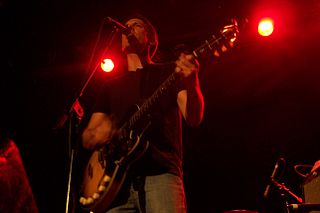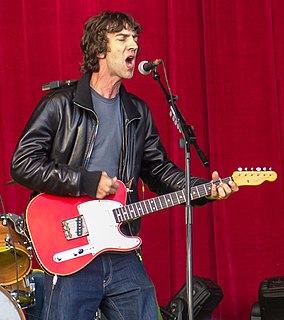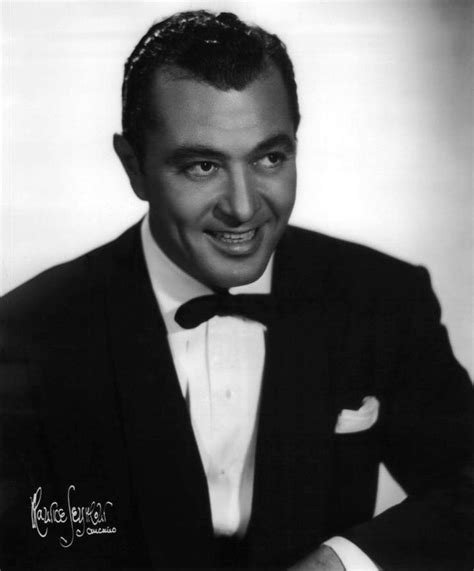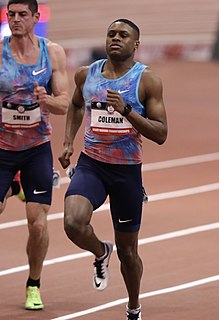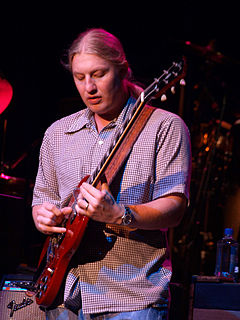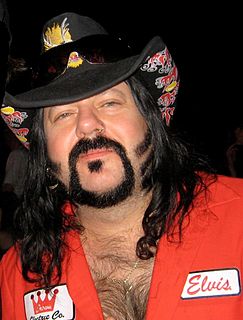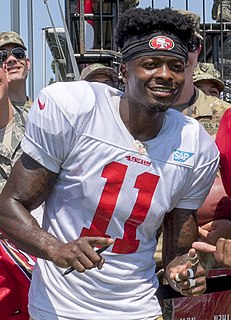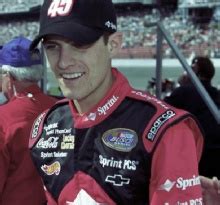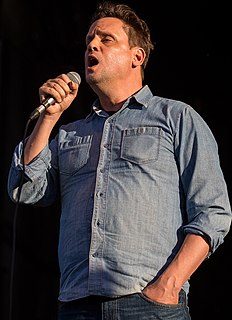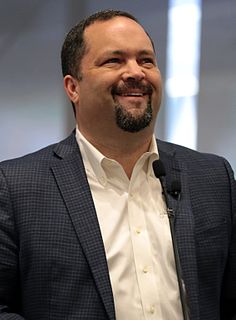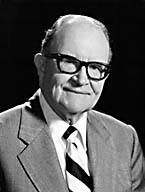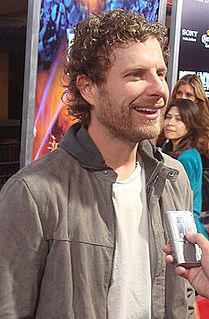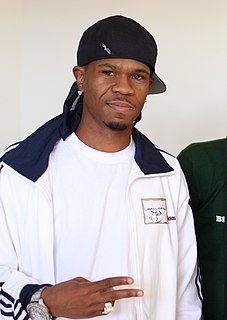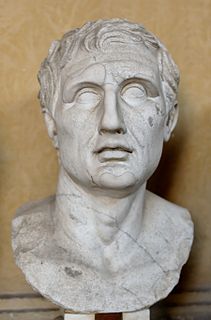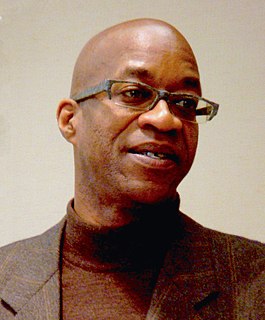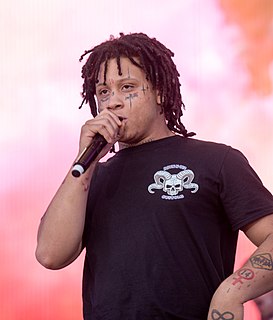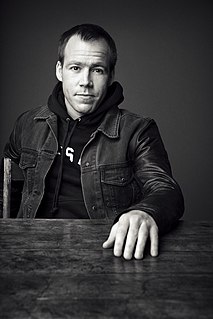Top 1200 Track Record Quotes & Sayings - Page 18
Explore popular Track Record quotes.
Last updated on April 19, 2025.
We'd lie on the floor, turn the lights out, put two speakers on either side of our ears, and try to blow our minds with music. I know that I want to make a record that does that yet a record that, if it was played on the radio at twelve in the afternoon, the guy making the wall - the guy cleaning the motorway - he's got a melody to hang on.
I most definitely wanted to make a record out of it. Due to the fact of the negativity and things that transitioned over the years, I just wanted to give [Chris Rivers] his space. I had this record "Danger" which Free Smith produced the beat. It was one of the first beats I got when I started recording again and one of the first I sang to.
From meeting Robert Plant, John Bonham, and John Paul Jones, teaming up, rehearsing, playing selected gigs outside of Britain, coming back into Olympic Studios to record the first album, and then going to America, which we crack open like a nut with the debut record - all that happened, literally, within months.
A lot of the gear came out of some of the old studios here in New York City. We picked up a lot of old microphones, reverb tanks, tape machines, so yeah, we try to record the old way, which takes more time and energy, but it certainly feels better when you're getting to the end of the process of making a record.
'Something/Anything?' was kind of a different record, since I'm playing everything myself. A lot of the songs on there have a particular kind of instrumentation that is much like a guitar quartet, and in some ways, it's an exceptional song on that record because so much of the writing on 'Something/Anything?' is piano-oriented.
In the very beginning, I kind of had this hip-hop, cut-and-paste approach to music. The first record, especially, was from looking at people like DJ Shadow and A Tribe Called Quest, and I think a phase that a lot of people go through when they start sampling is to go out and stamp on twigs and try to record that kind of stuff.
I think record cover sleeves really led towards, but at the same time the album as we know it didn't come into being until mainly after the Second World War because record labels realized they'd be able to make a lot more money putting all the singles of an artist onto one album and selling the whole album as a kind of a concept.
Phil Ramone and Quincy Jones were very close. Phil Ramone was one of the greatest record producers of all time. I don't know if they talk about him enough in the film, but he produced [Frank] Sinatra, Barbra Streisand, all of Billy Joel, Paul McCartney - Phil Ramone was one of the major record engineers and producers.
As Anna Freud remarked, the toddler who wanders off into some other aisle, feels lost, and screams anxiously for his mother neversays "I got lost," but accusingly says "You lost me!" It is a rare mother who agrees that she lost him! she expects her child to stay with her; in her experience it is the child who has lost track of the mother, while in the child's experience it is the mother who has lost track of him. Each view is entirely correct from the perspective of the individual who holds it .
My view is that "A Small Oak Tree Runs Red" is about putting people 'on the record,' who otherwise would have been forgotten, as a result of their bravery and love for one another. These characters demand justice, and they got punished for it. If we can correct that record in our artistic expression, in a poetic form such as this play, then that is our entire purpose and greatest benefit.
I've been using Steinberg's Cubase exclusively to record and mix my music since the very beginning of my career. It's no exaggeration to say that Cubase has been my partner in bringing my music and message to the world, and, now, they are helping to bring my story to the world as well, as I record the audiobook of my novel.
For me, what was important was to record everything I saw around me, and to do this as methodically as possible. In these circumstances a good photograph is a picture that comes as close as possible to reality. But the camera never manages to record what your eyes see, or what you feel at the moment. The camera always creates a new reality.
I wanted to make a record with a twist. I wanted to prove that you could make a record that concentrated on song craft but that was still fun, something you could listen to and love and even dance to, but not hate yourself in the morning. I think I did that. Most of my lyrics come from my own personal journals that I have kept over the years.
What Grandfather Burton did for me was to write a sacred family record, the small plates of Burton, or, if you will, an inspirational family record. Much of what we now regard as scripture was not anything more or less than men writing of their own spiritual experiences for the benefit of their posterity. These scriptures are family records. Therefore, as a people we ought to write of our own lives and our own experiences to form a sacred record for our descendants. We must provide for them the same uplifting, faith-promoting strength that the ancient scriptures now give us.
Andrew [Ridgeley] and I had demoed a couple of our songs very cheaply, and we weren't expecting any kind of record deal. We just walked around with our demo tape, trying to find someone to give us the money to demo properly. Instead of that, we got a record contract. It was just an incredibly lucky break.
When I hear a great new record, especially when it's by someone that I respect and admire, then a part of me is like, Why didn't I think of that? Why didn't I write that record? It makes you sick, but in a way it can be a great thing. It makes you want to go back to the lab and start writing again. Maybe it will inspire you to try a little harder.
If you have good songs and a real desire to make music, the next thing to do, instead of approach record companies, is to get yourself a really good manager because then it allows you to focus on your profession of being a musician. Then they can focus on the darker art of the record label and the music industry.
I'm like the opposite of one of those comedians who's funny on stage and depressed behind closed doors . On record, I can get pretty dark, but in real life I'm very carefree. But when I'm happy, I ain't writing songs, I'm out having a laugh, being in love. I wouldn't have the time. If I ever get married, it'll be 'Darling, I need a divorce, it's been three years, I've got a record to write!'
I ask myself all the time, 'Why keep doing this?' If I wasn't exploring or finding something to write about that was personal or meant something, there'd be no reason. If I was ever making a record just to make a record, or ever just like, 'Just put something out there that someone will buy,' I would quit.
It's a template record for the intersection between pop and noise, starting out with 'Sunday Morning' - a real beautiful, almost innocent sunny day song. You have a lot of different types of things on one record. It can be really pretty, or it can be really awful inside, depending on where your head's at at the moment. I got it in ninth grade and I think I've listened to it every month since then.
I always make a point to make my records different. Let's say I have a record that's influenced by hip-hop in an abstract way; for the next record, I'd try not to do that. They are all connected in a personal way but it's important not to repeat myself, because then I can always learn something about myself through my work.
The study of history is the best medicine for a sick mind; for in history you have a record of the infinite variety of human experience plainly set out for all to see; and in that record you can find yourself and your country both examples and warnings; fine things to take as models, base things rotten through and through, to avoid.
Someone gave me Roman Candle from Cavity Search when it came out. I was just starting to do A&R in the record business, and I remember being in my Volvo 240 in Silverlake, which is every bit the cliche it sounds like, sitting in front of my house playing the songs over and over again. It was the punkest record I had heard in so long.
It's a pretty great thing to have a record that at the end of the day you're not totally sick of and you're actually proud of. We're pretty lucky, because a lot of bands come out with their first record on a label and they're forced to make decisions they might not stand behind because someone's telling them it's a good idea. We didn't have to do that. I think that's one of the things I'm most thankful for.
